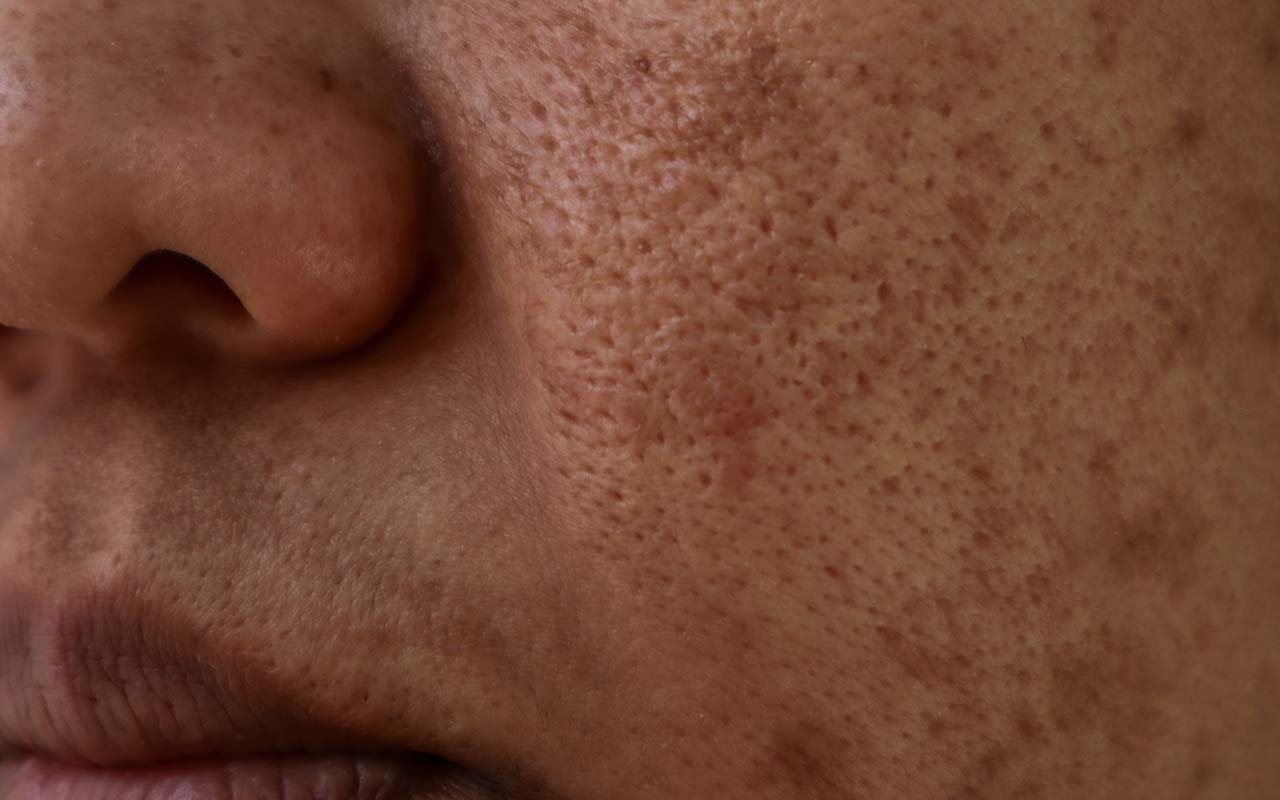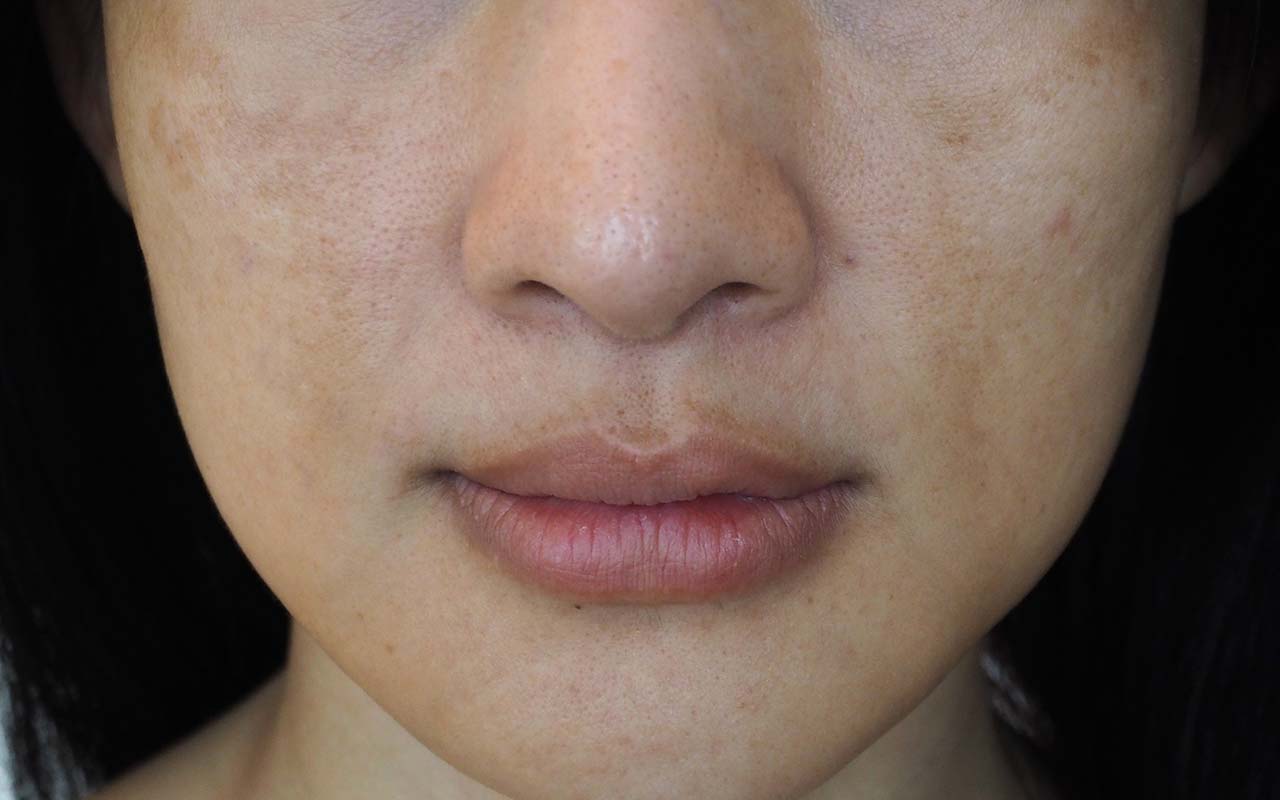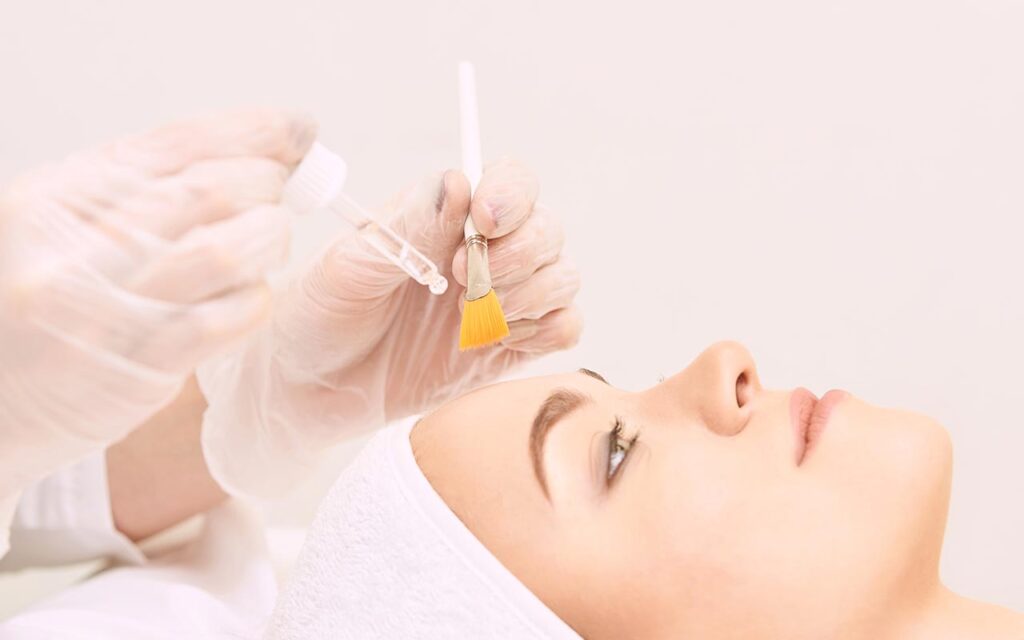Concerned about discoloured blotches appearing on your skin? You might be experiencing melasma – an annoying but harmless skin condition.
What is melasma?
Melasma is characterised by brown or blue-grey patches appearing on your skin. It’s a harmless condition, but one that can damage our self-confidence. This is especially the case because it commonly affects the face, including the upper lip – although it can occur anywhere on the body.
It’s not at all an indication that you are practising poor skin care – melasma can just be one of those pesky things that happen.
Maybe you searched the internet for ‘skin treatment for blotches’ to get to this page, or perhaps you have already heard the term melasma.
Either way, we know that many people want to seek out melasma treatment – and our expert team is here to help.
Why does melasma occur?
Melasma can appear randomly throughout one’s life, though certain factors make it more likely.
Some good skin advice, in general, is to wear SPF year-round, as this can prevent melasma from appearing. Fair-skinned people are more likely to experience melasma, and many people find that it improves during winter and worsens during the summer months. However, sun exposure isn’t the only reason you might have melasma.
Melasma is often called the mask of pregnancy – it’s estimated that between 15 to 50% of pregnant women experience it. It can be linked to hormones, and those who are taking oral contraceptives or additional hormones can be at increased risk of developing it.
In fact, just being a woman increases your chances: around 90% of melasma cases are in women. Both men and women can experience melasma though, and there’s a genetic element at play too. There’s no shame in it – or in seeking treatment – but rest assured that it’s a harmless condition.
If you’re not sure whether you have melasma or something more serious, it’s best to check in with a GP or dermatologist.

What are the treatment options for melasma?
Knowing how to treat melasma can be confusing – and the condition itself can be really hard on your self-confidence.
Luckily, there are ways to address the issue, and our expert team knows exactly how to treat melasma.
Melasma treatment should occur during the winter months, as sun exposure can worsen the condition and many treatments can affect the skin’s sensitivity to sunlight.
We offer different types of treatment for melasma: chemical peels, which gently remove the dead skin cells on the top layer of your skin, and Mesoestetics treatments. These can be applied in the clinic or used at home for ongoing treatment options. It might be that your skin needs a combination of both to achieve the best results.
If you want to know more about treating melasma, why not book yourself in for a free melasma consultation with one of our team members? We’ll be able to assess your skin and suggest the appropriate treatment method. If that involves home care, we will create a bespoke skincare plan for you to follow that’s designed to optimise your results.
Our experienced team are passionate about skin health and always have your best interests at heart, so won’t recommend any treatments if they don’t think they’ll work.




